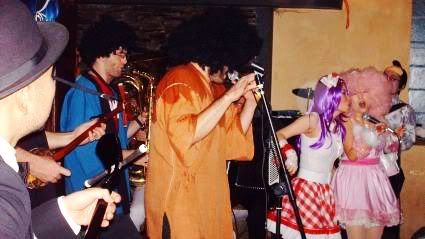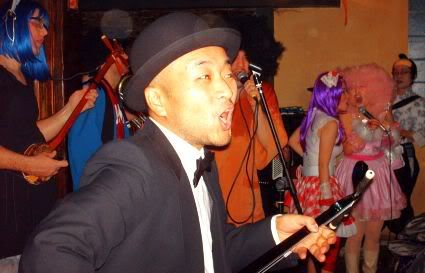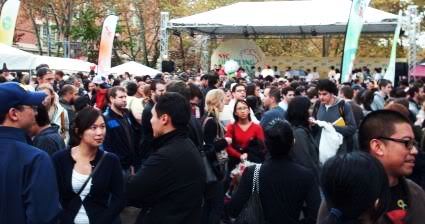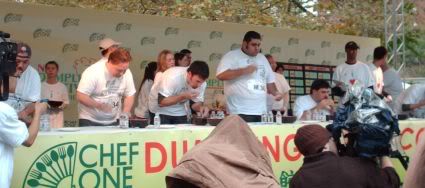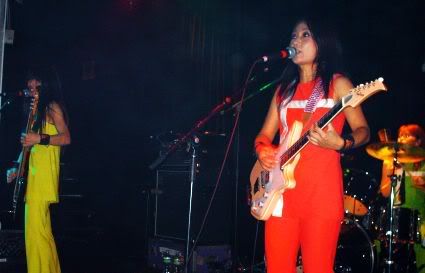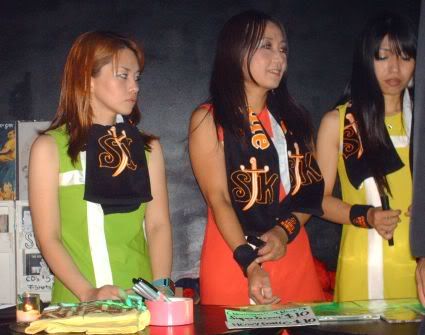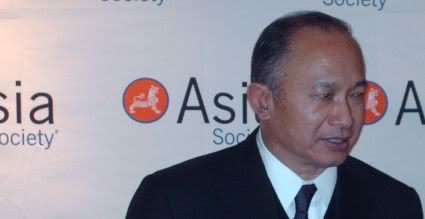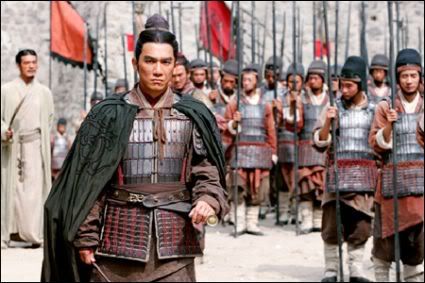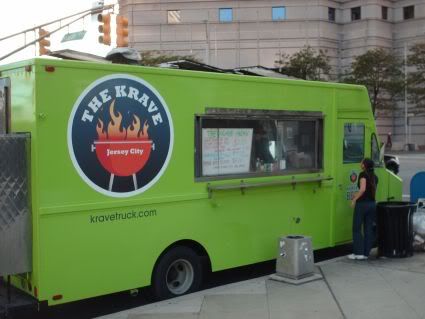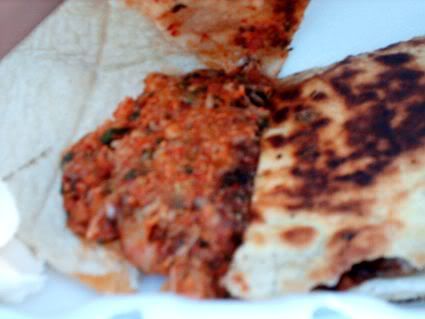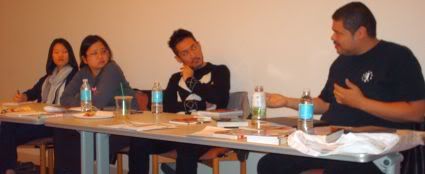
Panel: (Left to Right) June Kim, Mari Morimoto, Hiroki Otsuka, and Ivan VelezNEW YORK, October 21 – Erica Friedman, the President of
Yuricon and
ALC Publishing, moderated an interesting panel on Queer Manga. The event was being hosted by the
Lesbian, Gay, Bi-Sexual, and Transsexual (LGBT) Office at
New York University (NYU) as a part of their LGBT Pride Month. The panelists consisted of
Ivan Velez Jr. (American Comic Book Artist),
Hiroki Otsuka (Japanese Managaka),
Mari Morimoto (Manga Translator), and
June Kim (Korean Comic Book Artist).
Friedman began the panel with a quick summary of LGBT manga, which was extraordinarily helpful to a majority of the college students in the audience. She quickly defined of terms like
Yuri,
Yaoi, Boys Love, Girls Love, Bian, and Bara. Then she went into a brief history of LGBT manga from 1923 to the present. It was impossible for Friedman to cover everything due to time constraints, but she managed to do a brilliant job giving the abbreviated Cliff Notes version. She covered a variety of topics like
Riyoko Ikeda’s (池田 理代子) Claudine...! (クローディーヌ...!),
Yuri Shimai (百合姉妹) Magazine, and Eriko Tadeno's Works.
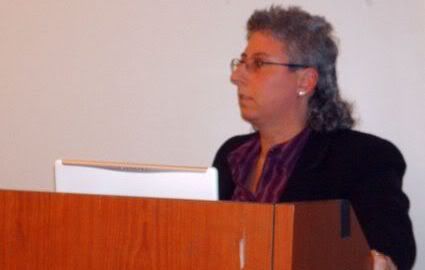
Erica Friedman (Moderator)Following Friedman’s introduction, the panelists discussed their personal experiences with creating and publishing LGBT manga and comics.
Ivan Velez demonstrated the varying degrees of gay manga. Velez began his portion of the panel with a home video of his trip to
Akihabara. The video mainly focused on his exploration of gay manga stores. He showed the different types of stores and sections selling both the lighter gay manga titles and the more graphic gay material. After the video, he did a quick introductory slideshow of works from famous Bara mangaka such as Jiraiya. Velez argued that the genre was very masculine and sweet at the same time.
On a different note, June Kim talked about her experiences while working on the
12 Days manga. She said it was based on a real life story of tragedy and loss. Surprisingly
TokyoPop, her publisher, did not have any problems with the openly lesbian and gay themes in the book. According to Kim, she never received any restrictive guidance or prohibitive directives from her publisher. This freedom allowed her to create an amazing manga with stunning artwork and a touching storyline.
12 Days was well received, and many of Kim’s readers tell her that the story literally moved them to tears.
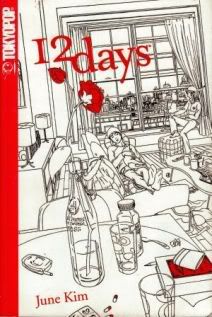
12 Days by June KimHiroki Otsuka discussed his transition from straight sex manga for young women to his open gay titles for gay men. He related his experience to the greater LGBT movement in Japan. He stated that Japanese society is still very conservative, and many gay mangaka don’t publicly declare themselves as gay or lesbian. There is still a heavy stigma attached to being openly gay. Kim interjected that the “don’t ask, don’t tell” policy is a very common phenomenon in most Asian cultures. Otsuka also discussed the slow growth of the gay community in the Second Street section of Akihabara. This burgeoning community of openly gay Japanese has led to the creation of two different groups: one group of Japanese leading openly gay lifestyles and another group of gay Japanese leading outwardly straight lifestyles. This stratification has created two divergent lifestyle philosophies concerning sexual identity in Japan.
In her portion of the panel, Mari Morimoto talked about the difficulties in publishing LGBT manga. She said that, “the publishing industry is very conservative.” The manga industry is not an exception. There are obstacles ranging from printing to distribution in regards to LGBT titles. In her efforts to promote and support LGBT works, Morimoto discussed her involvement with
Prism Comics and LGBT manga panels at various anime conventions.
On the whole, Friedman successfully created an open atmosphere that allowed the panelists to share very personal experiences regarding LGBT manga. The audience seemed to appreciate the candor and honesty of the panelists and their discussion.
Related Links:
